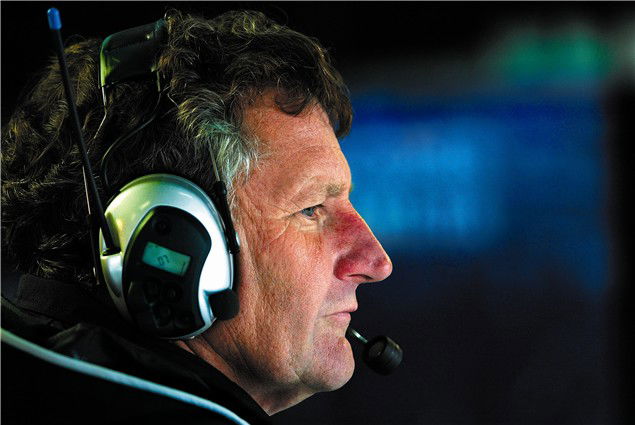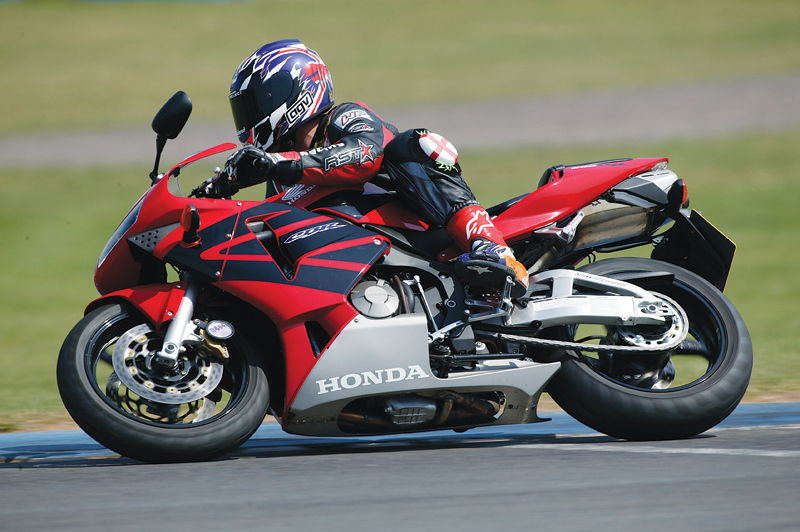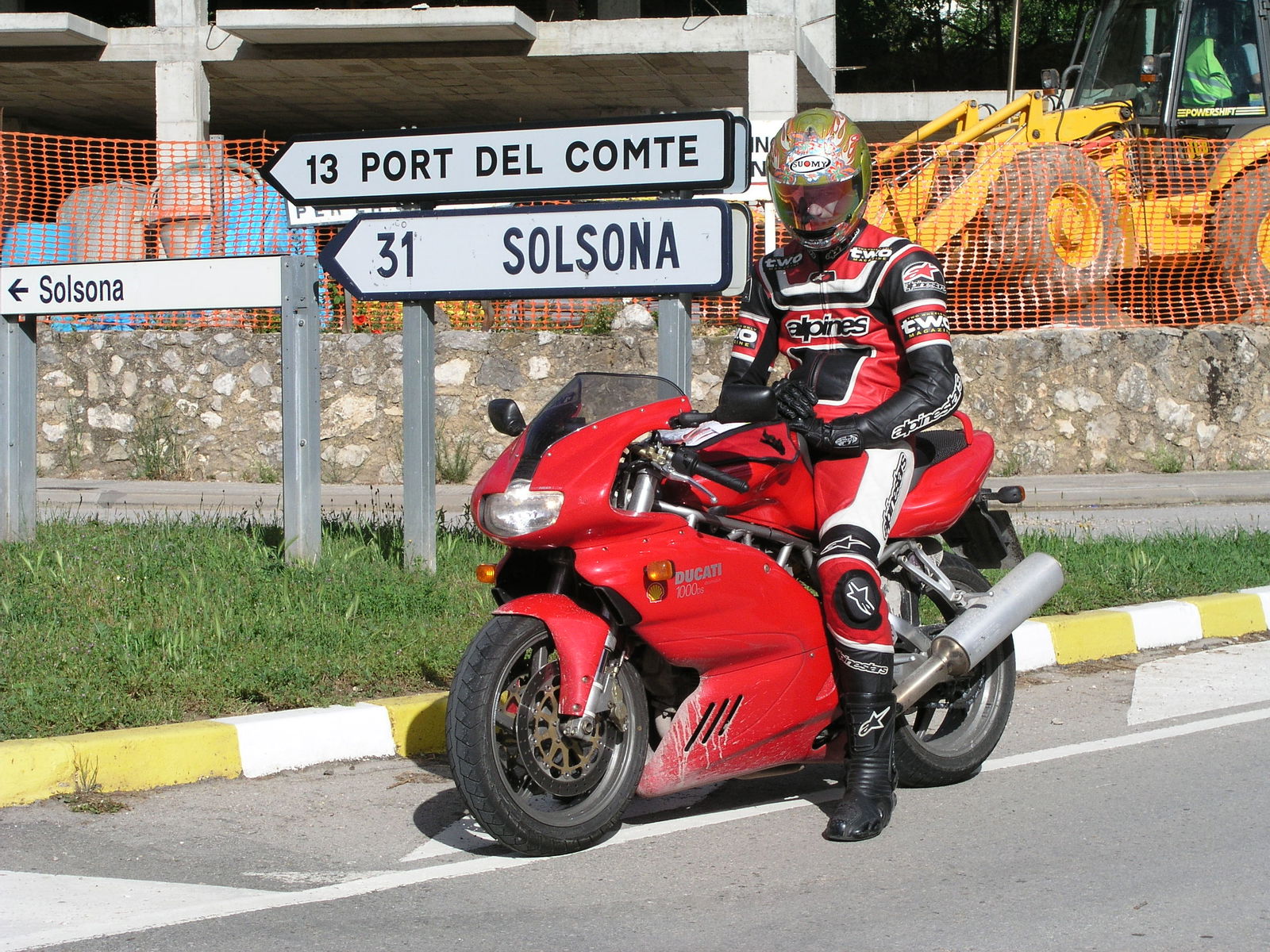Jeremy Burgess - The King Maker
Valentino Rossi's right-hand man has 14 GP titles to his credit and delights in psychological paddock warfare. Meet Jeremy Burgess


Jerry Burgess gets up at 5am on a race weekend. He heads for the computer, switches it on and combs the data, seeking something that might give Valentino Rossi's Yamaha YZR-M1 a microsecond's advantage on the track. He's 50 years old, but he's the first of the Gauloises team to have breakfast.
Now, 12 hours and two track sessions later, his rider has qualified on pole. Burgess is looking relaxed and amiable as he strolls into the Yamaha hospitality unit. He glides between tables, chatting and shaking hands as he heads for an office in the motorhome.
Surely it must be a stressful life, trying to defeat Honda's six riders and three teams in the MotoGP world championship?
"Look, I've been in it too long," Burgess says. "I've seen the highs and the lows. I used to be so wound up about it: I've been there when you're so intense that you don't see the big picture. That comes only with experience."
So in a world of yoga, meditation, personal trainers, pilates and workouts, Burgess does none of these. When the day is done, he has a beer and reads a history book. "I've just finished a really good one on the Crusades," he muses.
This year, Burgess and Rossi have troubled Honda by turning the bike that was the joke of 2003 - it scored a single podium position - into the most talked-about machine in '04. The 990cc YZR-M1 with its across-the-frame four is matching, and often out-performing, Honda's exotic V5.
The turn-around hasn't been achieved just by making a better motorcycle. The odd couple - clubber and late-sleeper Rossi is half Burgess' age - are winning because they wield a devastating brand of psychological warfare. No one can destabilise the paddock better than this pair of jokers. "I enjoy that side of racing," Burgess laughs. "I like it more than just setting up the bike and fixing problems."
The pair are pummelling Honda on an almost weekly basis with their armoury of psycho-weapons. Burgess sometimes uses one weapon from his arsenal on Juan Martinez, chief mechanic for Sete Gibernau's rival Honda team, when they walk off the grid before the start of a MotoGP race. Burgess says to him "Hey mate, calm down, it's only a motorcycle race," As Burgess observes later; "He and I get on well, but I love sticking it to him, in a good-humoured way."
At other times, Burgess and Rossi can stun the entire grid. At the final pre-season tests at Barcelona this year, Rossi beat Colin Edwards and Gibernau to pole position and the prize of a £25,000 BMW Z4 sports car. In theory it wasn't possible: he and Burgess had been working on the YZR for only 65 days since they joined Yamaha in January.
Then Burgess and Rossi maintain the heat. They won the first MotoGP of the season in South Africa. Weird, bumpy track, the sages said: Hondas will dominate at the power circuits of Mugello and Barcelona.
But Rossi won at both, despite having a slower bike. He and Burgess relied on a different tool: they always run with what they've got, rather than wasting time and energy wishing for things they don't have.
"We could only tackle the Hondas by maximising our strengths - the Yamaha's handling and turning," Burgess says. "Without that, we knew we wouldn't be close enough. We've also got a rider who says, 'I haven't got an extra 12kph, but I'm not going to let that prevent me from getting the best out of what I have.'" Burgess elaborates: "If you've got 12kph more, you've got to stop from 12kph faster. You have to brake earlier, so when they're on the brakes we're still on the throttle. If we could stay in the draft of a couple of 'em, we hoped to be there in the end. They were difficult races, but Valentino did it."
Qualifying at the Dutch TT at Assen, which has the highest average speed of any MotoGP track, demonstrated the strategy that Burgess deploys in winning pole position. Rain threatened, so Rossi recorded a respectable time early in the hour-long session. Then the crew focussed on optimising settings. With only seconds remaining and the track still dry, they slapped on a qualifying tyre, and Rossi axed a staggering 1.410 seconds from his previous best. He set a new qualifying record at 1m58.758s - a vast 1.145 seconds faster than Gibernau, his closest Honda rival.
But wasn't it a gamble to wait until so late in the session to produce the super-lap? "I was monitoring the times and could see that we never left the front row," Burgess explains. "Meanwhile, we were doing work for the race. Had we slipped off the front row at any stage, he would have been brought in immediately and we would have used the qualifier. But it was a situation that I was aware of."
Very coolly handled. And now that Burgess and Rossi have demonstrated the M1's potential, fellow Yamaha riders Carlos Checa and Marco Melandri are performing better.
"After Valentino won in South Africa, you couldn't talk to your mate about how bad the bike was," says Burgess. "You had to say, 'Jesus, we'd better go.' This industry is very much about confidence. It's the same bike as last year, with a revised engine. But people are confident now that Valentino is doing it.
"The riders can see that the situation is pretty much like the Honda always was: you get on a Honda and you know that all the bugs are out of the bike. You put the settings in and concentrate on your riding. But you don't try and build the motorcycle."
He and Rossi have had the opposite effect on Honda riders. Until this year, the RCV-211V was regarded as the epitome of motorcycle design in grand prix racing. Now Honda riders talk about how close they can get to the Yamaha, and frequently complain of 'chatter' - the wheels pattering across the road. Hearing this, Burgess wields the psycho-surgeon's knife again. "I'll go and help them if they want!" he laughs. "Handling was not an unsolvable problem when I was there. Maybe they don't know how to fix it? Maybe they're scared to alter the settings that worked well last year?"







